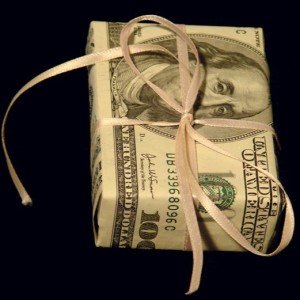 “I’ll sniff out a deal. I have a sixth sense.”
“I’ll sniff out a deal. I have a sixth sense.”
“Cheapness is not a sense.”
~ George and Jerry, in Seinfeld, “The Reverse Peephole”
Seinfeld was chock-full of sage business advice, and these cautionary words about cheapness are a case in point. Indeed, cheapness got Seinfeld characters into quite a bit of trouble on numerous occasions — a used wheelchair that sent its attractive occupant hurtling down the road; the “Willard” tip calculator that cost Marty the condo board president election; and, most notably, the cheap wedding invitation envelopes that sealed not the invitations, but rather the fate of George’s fiancé, Susan.
In business, cheapness gets entrepreneurs into similar trouble. We see it all the time at our marketing agency. Small firms call us nonstop, looking for big results on a shoestring budget. We try to tell them it simply won’t work, but it never seems to sink in. What happens time after time is these companies launch a marketing campaign (not with us), drop it after six months, and waste virtually every penny they spent.
Half measures are not effective in business. As a friend of mine always likes to say, “If you’re going to be a bear, be a grizzly.” This is true in sales, marketing and operations. It’s far better to spend more money doing something right than less money doing something wrong. Examples:
- Sales: You’ll get more ROI hiring one great salesman than parading cheap ones through a revolving door.
- Marketing: You’ll get more ROI launching one properly funded marketing campaign than five that are crippled by underfunding.
- Operations: You’ll get more ROI out of investing in a decent quality control (QC) process than going through the motions of QC and dealing with product returns, lost customers and a horrendous reputation.
Why do so many entrepreneurs go cheap? Three reasons come to mind.
First, entrepreneurs are playing with their own money. Understandably, they don’t want to waste it. However, the irony is, wasting it is exactly what they end up doing.
Second, some entrepreneurs have a fear of commitment. Somehow, underinvesting in three marketing campaigns is more comfortable than seriously investing in one. Maybe it’s a feeling of flexibility or a desire to hedge one’s bets. Whatever the case, great entrepreneurs are willing to go all in.
So what’s the cure? How do you get elected condo board president and avoid killing your fiancé?
I think I can sum it up for you in one word: Nothing. (Just kidding.)
The one word is board.
Entrepreneurial companies greatly benefit from setting up a formal or informal board of directors. A board is a great way to overcome cheapness.
First, a board helps owners craft a focused business plan with controlled, selective and adequate investments that produce ROI rather than a smattering of unfocused, cheap investments that produce nothing.
Second, if the board members are chosen wisely, they will have knowledge of aspects of the business the owner is not as familiar with, rounding out the knowledge and experience base. This additional perspective and insight adds enormous strength to the business plan and strategic decisions.
Third, these preceding two points make entrepreneurs more confident in spending their money — and they will indeed spend it more wisely.
Put a board together. Meet quarterly, perhaps over dinner. And when you dine, please … pick up the check.

